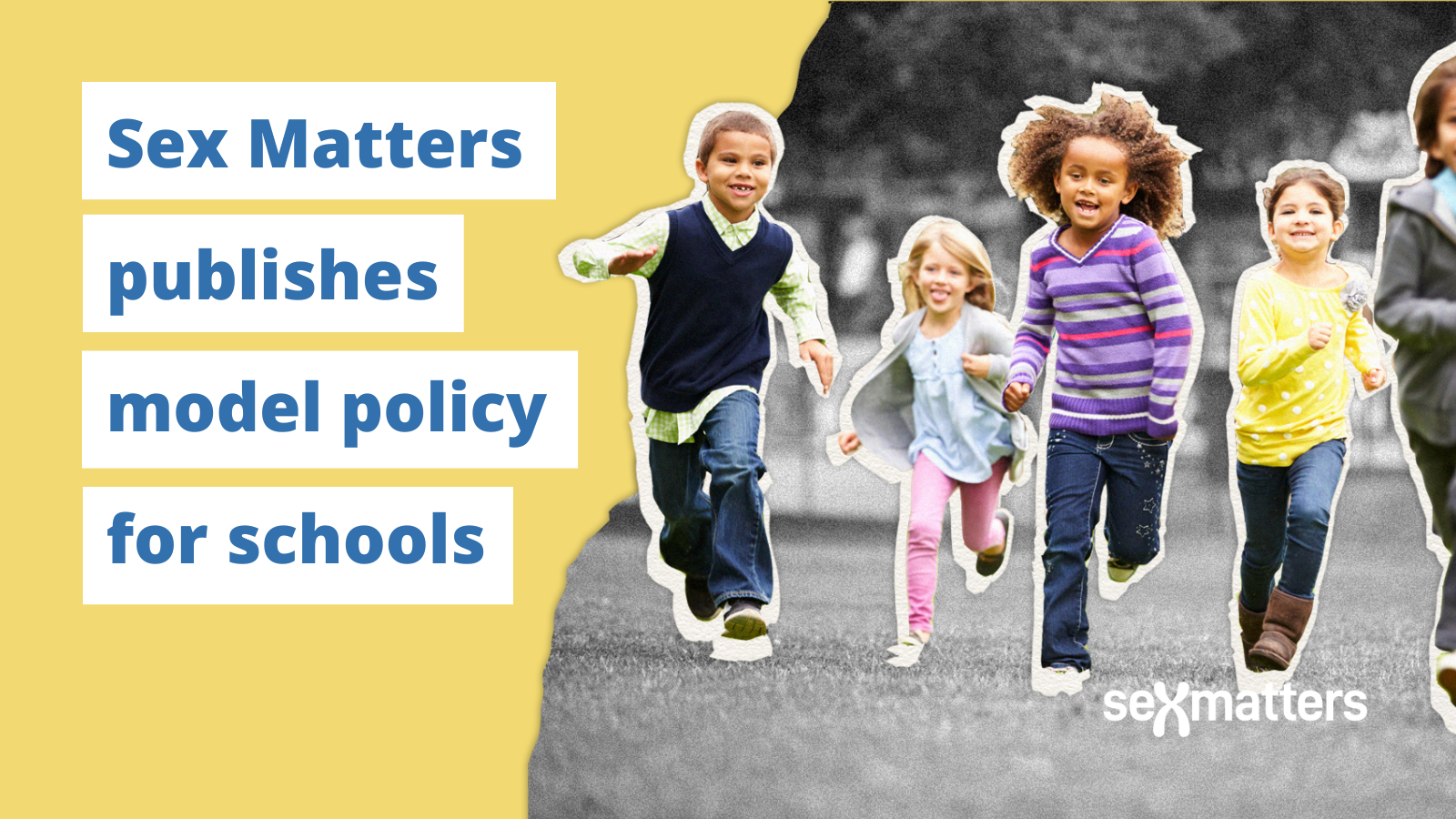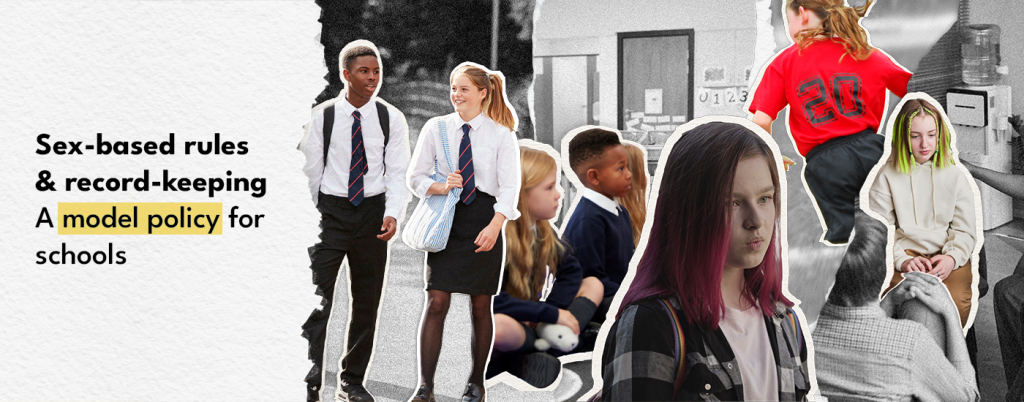A model policy that protects all children’s wellbeing

Teachers and pupils in England are going back to school this week, and are still lacking finalised guidance or a model policy from the Department for Education on what to do if children ask to be allowed to “socially transition” and be treated as the opposite sex.
Sex Matters has been calling for the Department for Education to produce a simple, straightforward model policy that schools can adopt, to be confident of giving safe and lawful answers which protect the wellbeing of all children.
Today we are publishing our model policy, which is aligned to safeguarding legislation, the Cass Review, the Equality Act 2010 and the DfE draft guidance.
Our policy is a whole-school model policy that concerns how a school records, communicates and uses data and language on the sex of all pupils, and how it can make sure that where it has policies that treat girls and boys differently it does so fairly and lawfully.
The model policy provides answers to questions from pupils and parents who want the school to bend those rules and routines for a child who is experiencing gender-related distress or who identifies as transgender.
It is designed to help school and college leaders be confident that their approach supports robust safeguarding and does not subject any child to unlawful discrimination or harassment under the Equality Act 2010. The basic approach is to:
- treat all pupils with compassion and respect
- communicate sex-based rules and policies that protect the wellbeing of all pupils
- be clear that these rules apply to all pupils for the whole time they are at school.
It includes specific policies for areas such as changing rooms, sports and uniforms and emphasises that schools use clear sex-based language in order to be clear about rules that apply to girls and boys.
We hope the model policy will be useful to school leaders who are facing demands from activist groups, and will encourage the DfE to produce its own clear, straightforward model policy for schools.

